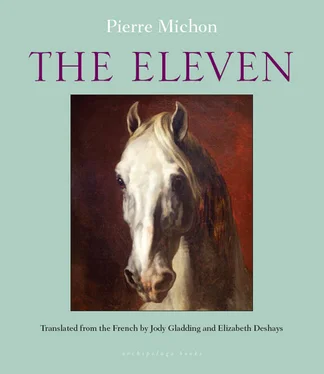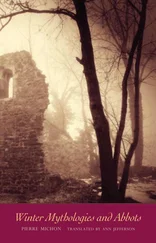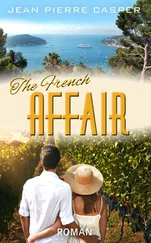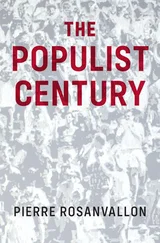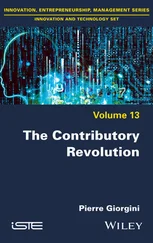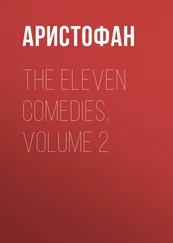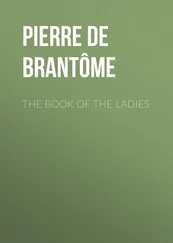Corentin made himself comfortable. He knew the place, he had come here as neighbor, as painter, as citizen as well, since that was the mask one wore then, and which he had been willing to adopt, like everyone else. On the floor near the fire, the other four played their hands. Corentin glanced about. On the large table on either side of the lantern there were four-pound loaves of bread, a plate of bacon, and wine in carafes, all of it untouched; and on the other side, a little cloth bag, half open, that intrigued Corentin. He moved closer and, opening it wider, he saw and felt under his fingers small fragile brownish things that he recognized to be very old human remains, vertebrae and a few broken long bones. He asked what those remains were doing there. Without looking up, one player answered between deals that they were the remains of an erstwhile saint whose reliquary the section members had taken and melted down that very day at the Mint, and that had been left there, who knows why, before being tossed into the fire, since they were not burning them any longer on the Place de Grève (Robespierre, or rather the Robespierrots , had indeed put a stop to those official excesses since the end of the summer, prompted by distaste or politics, for they were already secretly preparing to counter those holocausts to the goddess Reason, the pale queen of hearts exalted by the Factions, by playing the Supreme Being). The men played on; Corentin ran the little bones under his fingers; from the other side of the wall in the nave he heard the horses making their usual horse noises, snorting and breathing, warm and comforting, vaguely frightening. Corentin wondered for a moment what had become of the old bones of the two saints he had martyred, under the earth in Combleux. Then he thought again of the little girl, who must have been terrified at that moment in the garret. It all gradually merged, the bones, the old women, the little girl. He thought of other women, dead, gone off, left behind. Then he no longer thought of women, because the men were there.
It was well past midnight. They hurried into the warmth, all three of them, greatcoats pulled up to their noses, two-cornered hats pulled down over their eyes, cockades, boots; the third man more self-assured than the others. As they entered, they threw their greatcoats and hats next to the bust of Marat on the little table, as Corentin had done with the coat the color of the smoke of hell . Corentin had placed them immediately, as they turned toward him, he fully recognized the features that loomed up in the glow from the fire and the great lantern: the ugly look and flat hair of the first; the thick, light blond Flemish hair, the bulging, astonished but impassive Flemish eyes of the second; the equally flat, straight hair, the small gold earring, the copper complexion and vertiginous self-assurance, despite being rather short, of the third. There they were, in order: Léonard Bourdon, the squealer, the erstwhile schoolmaster, now champion of the goddess Reason, defanaticizer and regenerator , melter of bells and reliquaries — the little runt whose yelping made him a pack all by himself; Proli, the man with the golden touch, the banker of the patriots — Corentin was surprised he was there, he thought there was a warrant out for his arrest, that he had fled; the third man was Collot d’Herbois. He knew all three of them, but Collot he knew differently.
It had been a long time since he had seen him. They were friends in a certain respect, since 1784 in Combleux the year of the Sibylles , when Collot was preparing a play for the theater in Orléans where he was director and Corentin had set up the scenery and designed the costumes for him for a Shakespeare production, dulcified as only those times knew how, translated and adapted by Jean-François Ducis or by Collot himself; they had seen each other often because they greatly appreciated one another on points I may relate to you; Collot, with whom, in short, he had done the whole revolution, the good years, who had introduced him everywhere to those newly in power before things took a strange turn, before Collot, in this strange turn, came into his own and took wing, after which they no longer saw one another.
They embraced. As always when they met, there was that similar look in their eyes, as in a mirror, the same dark cheer, and more cheerful still than dark for Corentin, but now for Collot more dark than cheerful. He was a little drunk as usual: the brandy, the shouting at the Jacobins, the self-assurance, the panache, the power, the fear, the compassionate zeal for the unfortunate that was for him a very strong and lasting liquor. But otherwise, he seemed to Corentin a bit changed; he had just returned from his long mission in Lyons, from the vertiginous proconsular heights, from the carnage; he had exercised absolute power unprotected, he had seen the abyss and the God of armies. The copper complexion was redder than usual, and mixed with the dark cheer was a kind of absence. Corentin saw all that very quickly, the three Jacobins were already at the table, breaking the bread and attacking the bacon; Proli had the best seat, in a prince’s or bishop’s richly colored armchair, the other two in chairs on either side; as he ate, Bourdon commented on the meeting at the Jacobins, in short, sibylline sentences that Corentin had trouble following, in which it was a question of Maximilien, of Camille who was done for , of Danton who was done for , of the Cordeliers who would not be pushed around , of the war, of fear, of power, of conflicting powers, of Robespierre again — this last name a little drawn out, as though falling from a cloud or emerging from a crypt; Collot sometimes nodded assent; Proli said nothing. They offered Corentin Clamart wine, which they were drinking from aristocratic glasses set there before their princes by the Sans Culottes. Whom Bourdon moreover soon ordered to be gone and added, as they were leaving, “Have this trash burned,” indicating the small sack of bones. Ducroquet, who had just stoked the fire, threw it into the bright flames, where it blazed and vanished in an instant like kindling. Ducroquet regarded it with a kind of melancholy or regret. “What are you waiting for?” asked Bourdon. The other man stood there foolishly for a moment, then let out a laugh and turned on his heels. Then the four Limousins on duty could be heard noisily seeing to the horses in the nave, then taking off under the vaults, and they were no longer there.
It was not Bourdon, it was Proli who spoke. He silenced Bourdon; he half turned toward Collot and asked him a brief question in a low voice, in which Corentin thought he heard the words confidence and secrecy. Yes, said Collot several times in a loud, firm voice. Proli looked at Corentin with that mixture of repulsion and respect that he often prompted, whether intentionally or not we do not know. He said: “Would you execute a commission, citizen painter?”
The question surprised and amused him. It also rejuvenated him.
He no longer really had private commissions. Not that he was unemployed, very much to the contrary: he was working for the Committee of the Arts, for the Nation, that is, for David, under David; under David’s orders he knocked off statues of liberty, scales of justice, red hats over Spartan skirts, commemorative plaques to Jean-Jacques Rousseau, odds and ends. They formed a team to do this, all of French painting or what remained of it: because David kept a cool head and needed manpower; and although he had ousted, imprisoned, and exiled all his direct rivals, those of his generation, the forty-year-olds, he had retained the old hands of the has-beens, Fragonard, Greuze, Corentin; and of course the lively hands and ambitious hunger of the young ones, Wicar, Gérard, Prud’hon, his assistants, small fry you had to keep an eye on like the plague. David, who feared Corentin because he was a master, also scorned him because he was old, Tiepolonian, obsolete; but he employed him; he knew that Corentin feared David more than David feared Corentin: because David sat on the Committee of General Security, so that he put his signature next to those of the eleven at the bottom of decrees, he had the ear of Robespierre — while his other ear and his sidelong glance somnambulistically lingered in Sparta, where his models, plans, and successive crazes came from, which Corentin executed with great seriousness and with irrepressible inner laughter.
Читать дальше
